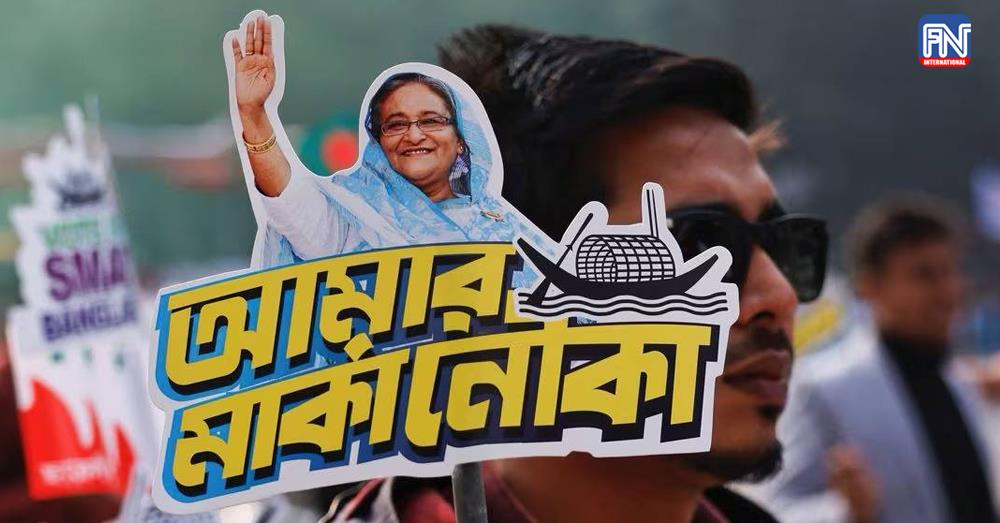DHAKA, Jan. 7 (Reuters) - Bangladesh Prime Minister Sheikh Hasina is set to win a fourth straight term and the fifth overall for her Awami League-led alliance in a general election on Sunday boycotted by the main opposition party and marred by violence ahead of the vote.
Voting will begin at 8 a.m. (0200 GMT) and end at 4 p.m. (1000 GMT). Counting will start soon after the end of voting, with initial results expected by early Monday.
Rights groups say the country of 170 million is headed for virtual one-party rule, after the boycott by the Bangladesh Nationalist Party (BNP) and some of its smaller allies.
The United States and Western nations, important customers of its garment industry, have called for a free and fair election - the country's 12th since independence in 1971.
About 120 million voters will choose from nearly 2,000 candidates for the 300 directly elected parliamentary seats. There are 436 independent candidates, the most since 2001.
The BNP says the Awami League has propped up "dummy" candidates as independents to try to make the election look credible, a claim the ruling party denies.
The BNP, which also boycotted the 2014 poll but took part in 2018, has asked people to shun the poll and called a two-day strike nationwide from Saturday.
Hasina, who has refused BNP demands to resign and cede power to a neutral authority to run the election, accuses the opposition of instigating anti-government protests that have rocked Dhaka since late October and killed at least 14 people.
With the ballot outcome all but assured and high risk of violence, turnout could be low on Sunday.
Violence erupted on the eve of the election, with a passenger train fire, which the government called arson, killing at least four people while several polling booths and institutions were set ablaze around the country.
Troops have fanned out across Bangladesh to maintain peace while nearly 800,000 police, paramilitary and police auxiliaries will guard polling booths on Sunday.
In her last 15 years in power, Hasina, 76, has been credited with turning around Bangladesh's economy and the garment industry. But critics have also accused her of authoritarianism, human rights violations, crackdowns on free speech and suppression of dissent.
Her main rival and two-time premier, BNP leader Khaleda Zia, is effectively under house arrest on corruption charges the opposition says have been trumped up.
Khaleda's son, Tarique Rahman, is the acting chairman of the party, but he is in exile, facing charges that he denies.
The economy has also slowed sharply since the Russia-Ukraine war pushed up prices of fuel and food imports, forcing Bangladesh to turn to the International Monetary Fund for a bailout of $4.7 billion last year.





